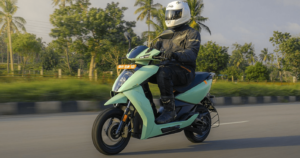Petrol Bikes and Scooters to be Banned in Delhi from August 2026: Shift Towards Sustainable Urban Mobility
Delhi is struggling with serious issues related to air pollution and traffic congestion. The air in the city often becomes thick and unsafe to breathe, especially during winter months when smoke and vehicle emissions build up. Traffic jams have become a daily problem, causing delays, pollution, and stress for residents. The government recognizes these challenges and is making efforts to address them. They want to improve air quality and create safer roads for everyone. One of their biggest moves will start in August 2026, when they plan to ban petrol-powered bikes and scooters from the city. This ban aims to cut down on emissions caused by gasoline engines, which are a major source of pollution. It is part of a larger plan to help Delhi become a cleaner, greener city. The move shows a clear shift away from relying on fossil fuels, like petrol and diesel. Instead, the government wants more electric vehicles to take their place. Electric bikes and scooters are quieter, produce no exhaust fumes, and are kinder to the environment. This change is expected to reduce smog and improve air quality significantly over time. Officials hope that this step will also inspire more people to switch to electric options, making Delhi a cleaner city for future generations. The move aligns with global efforts to reduce carbon emissions and fight climate change. It shows the city’s determination to create a healthier environment and safer roads for all its residents. This decision marks a new chapter in Delhi’s ongoing efforts to tackle pollution and make urban transport more sustainable.
Environmental Concerns and Air Quality Improvement
Delhi has some of the highest levels of air pollution in the world. PM2.5, which are microscopic particles in the air that can enter the lungs deeply, can reach dangerously high levels at some seasons of the year, particularly during the winter and the dry season. These high pollution levels cause serious health problems for everyone, even for the young and healthy. People suffer from respiratory issues, allergies worsen, and there are more cases of asthma and other lung diseases. The air quality in Delhi is so poor that it has caused frequent alerts asking residents to stay indoors and avoid outdoor activities.
A large part of this pollution comes from small vehicles, particularly petrol-powered bikes and scooters. These vehicles are often used by millions for daily commutes because they are cheap, convenient, and easy to park. They breathe a lot of toxic gases despite their small size. They emit nitrogen oxides, which irritate the lungs and can worsen asthma. They also release tiny PM particles, which are dangerous because they can stay suspended in the air for hours and even days. These particles can penetrate lung tissues or enter the bloodstream, increasing health risks. While cars and trucks contribute to pollution as well, two-wheelers are responsible for a big share of the problem because they are so widespread.
Data from environmental studies show that two-wheelers are among the top sources of air pollution in Delhi. They make up a large percentage of vehicles on the road and are often older, poorly maintained, and more polluting than newer models. During peak traffic hours, the exhaust from these bikes and scooters adds heavily to the smog that blankets the city. Traffic jams compound the problem, as vehicles idle for hours, releasing more fumes into the air.
The World Health Organization has set high standards for air quality. According to these standards, Delhi’s air is often unsafe, especially during peak pollution seasons. The high levels of PM2.5 and nitrogen oxides mean residents breathe in toxic air that can cause or worsen health issues. Many experts agree that reducing emissions from small two-wheelers could significantly improve air quality.
To fight this problem, the government has announced plans to take action. One of the most discussed options is banning petrol-powered two-wheelers entirely in the city. The goal is to cut down on harmful fumes and help clear the smog. Such a ban is expected to push more people towards cleaner transportation options like electric bikes or public transit, which produce no emissions. The move aims to make the air safer for everyone and improve the overall health of Delhi’s residents. This step is part of a larger effort to clean up the city’s polluted air and make it a healthier place for future generations.
Reducing Traffic Congestion and Noise Pollution
Two-wheelers are everywhere in Delhi. They clog busy streets and make traffic worse. When thousands of petrol-powered scooters vroom through the city, they add to the jams. These vehicles also create noise, which affects our daily lives. Switching to electric bikes and scooters can cut down both traffic and noise levels. This creates quieter, smoother roads and happier residents.
Alignment with National and Global Climate Goals
India is a member of the Paris Agreement, an international accord aimed at reducing global greenhouse gas emissions. The country has committed to cutting its carbon footprint and helping fight climate change. As part of this commitment, the Indian government supports the shift to cleaner forms of transportation. One of its major plans is to promote electric vehicles through the National Electric Mobility Mission. This program encourages both manufacturers and consumers to adopt electric cars, buses, and bikes.
In recent years, India has taken strong steps to limit the use of petrol-powered vehicles. Banning petrol-powered bikes in Delhi is a clear example. This move helps reduce harmful emissions released into the air. It also pushes people to switch to electric bikes, which produce no tailpipe emissions. The ban is especially important in Delhi, where air pollution often reaches dangerous levels.
Shutting out petrol bikes from the city streets will show that Delhi is ready to lead in fighting climate change. It will demonstrate the city’s commitment to cleaner air and a healthier environment. This action aligns with India’s larger goal of reducing overall emissions and meeting its climate targets. It also encourages other cities in India to follow suit and take similar steps.
The ban is part of a broader effort to create a greener future for Delhi. It aims to lower pollution, reduce traffic emissions, and advance the use of electric vehicles. These actions are vital for improving air quality, especially during the high-pollution months. Experts believe that supporting electric transportation can significantly cut emissions. It will also set an example for other parts of India and help the country meet its climate goals faster.
Overall, India’s move to ban petrol bikes in Delhi highlights the city’s leadership in environmental issues. It demonstrates a clear plan to prioritize clean energy solutions. This step not only benefits the environment but also improves the quality of life for residents. It is part of a larger push to develop sustainable, eco-friendly transportation options across the country. The future depends on these bold actions to reduce pollution and protect the planet for generations to come.
Policy Support and Incentives
The government is offering tax rebates, low-interest loans, and subsidies to make electric bikes more affordable. New regulations are also simplifying the charging infrastructure rollout. These steps ease the switch to electric mobility.
Technological Advancements and Market Trends
Battery tech is improving fast, boosting vehicle range and cutting costs. More brands now produce affordable, reliable electric scooters and bikes. As more options become available, consumers find it easier to choose electric.
Private Sector and Public-Private Partnerships
Companies and authorities are teaming up to build charging stations and launch rental schemes. Successful projects in other cities show that combining efforts works. These partnerships are making electric mobility accessible for everyone.
Economic and Social Implications
Shifting away from traditional vehicles that rely on gasoline and diesel has a major impact on small repair shops and businesses that sell spare parts. These small businesses often depend heavily on the steady demand for repairs and replacement parts for conventional vehicles. As more vehicles become electric or use cleaner energy sources, the need for certain repairs decreases. For example, electric cars have fewer moving parts, which means less maintenance and fewer parts to replace, such as oil filters and spark plugs. This change could lead to fewer customers coming into repair shops that mainly service gasoline engines. Workers in these industries may need to learn new skills. Many mechanics have spent years fixing traditional engines. Now, they might need training to work on electric or hybrid vehicles. Electric cars have different parts, like batteries and electric motors, which require special knowledge to repair and maintain. Some repair shops might face challenges finding new tools or training staff. This transition could cause some workers to lose their jobs if they do not adapt quickly. At the same time, the shift toward cleaner vehicles offers big benefits for the whole economy. Air pollution from old cars causes health problems and costs billions in health care every year. Moving to cleaner cars can improve air quality and make cities healthier places to live. It can also help reduce the effects of climate change by lowering greenhouse gas emissions. This transition creates new job opportunities, too. For example, companies are hiring workers to build and maintain electric vehicle charging stations. These new green jobs can boost local economies and help workers find stable jobs in growing industries.
Overall, the shift to cleaner transportation will reshape how small repair shops and spare part businesses operate. While some will need to change their services and retrain workers, many others will benefit from the new demand for green technology. The move toward cleaner cars ultimately aims to improve health, create new job opportunities, and foster a more sustainable economy.
Long-term Vision for Sustainable Urban Transport
Delhi aims for full electrification of its two-wheelers and public transport. Integrating electric bikes with buses and metros can make commuting easier. Smart city plans include more green routes and infrastructure for EVs.
Conclusion
Delhi’s plan to ban petrol bikes and scooters by 2026 is more than just an environmental move. It’s a step towards cleaner air, quieter streets, and a healthier city. The transition to electric mobility offers countless benefits—lower pollution, lower costs, and a sustainable future. Residents, manufacturers, and policymakers all need to work together for a smooth change. Together, Delhi can become a model city for green urban living and clean transportation.




